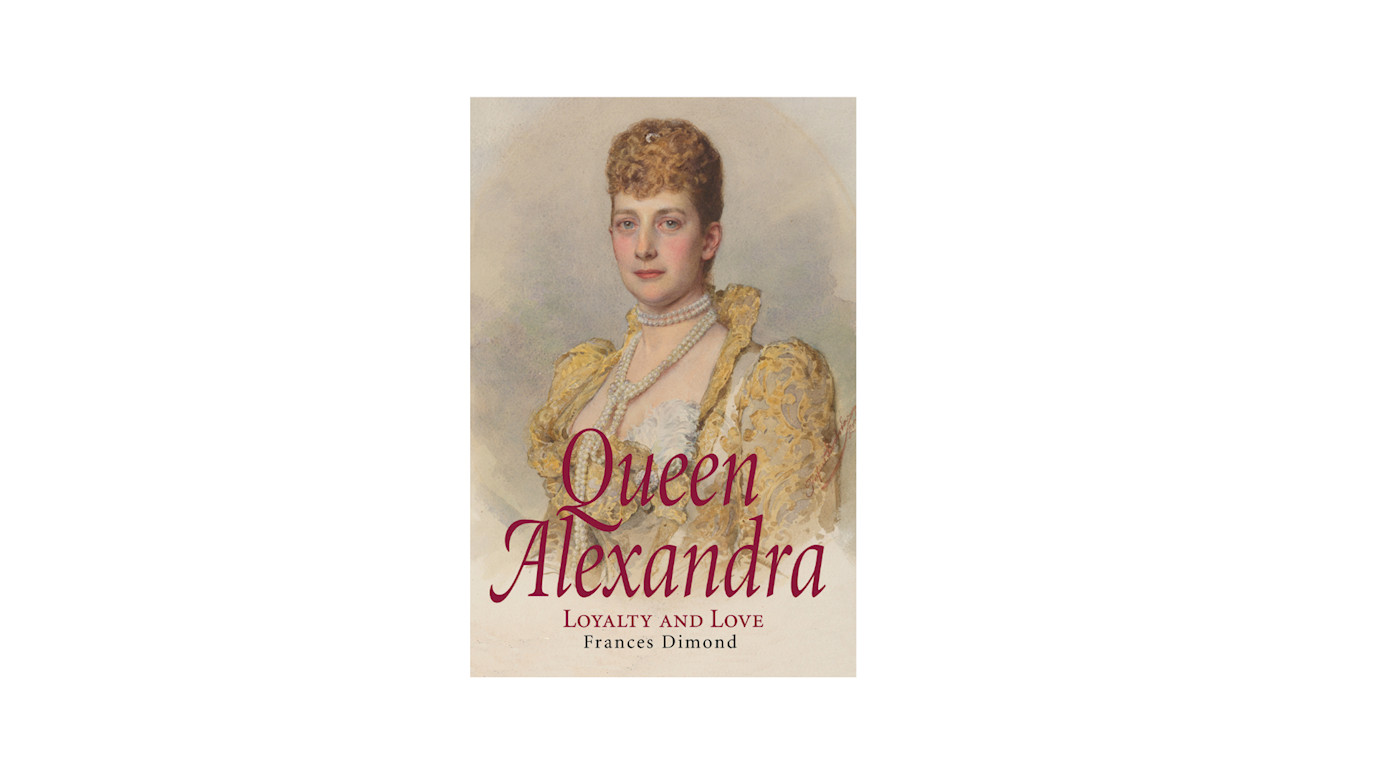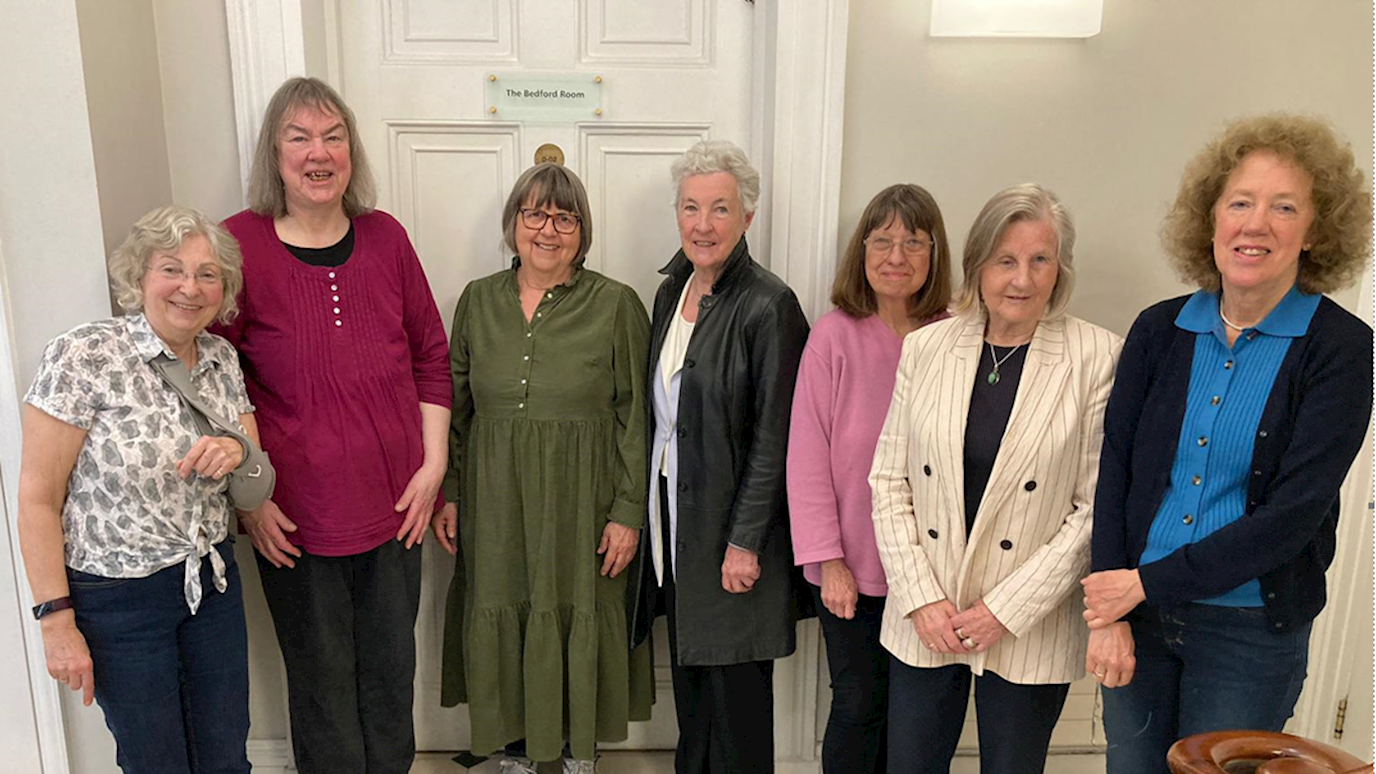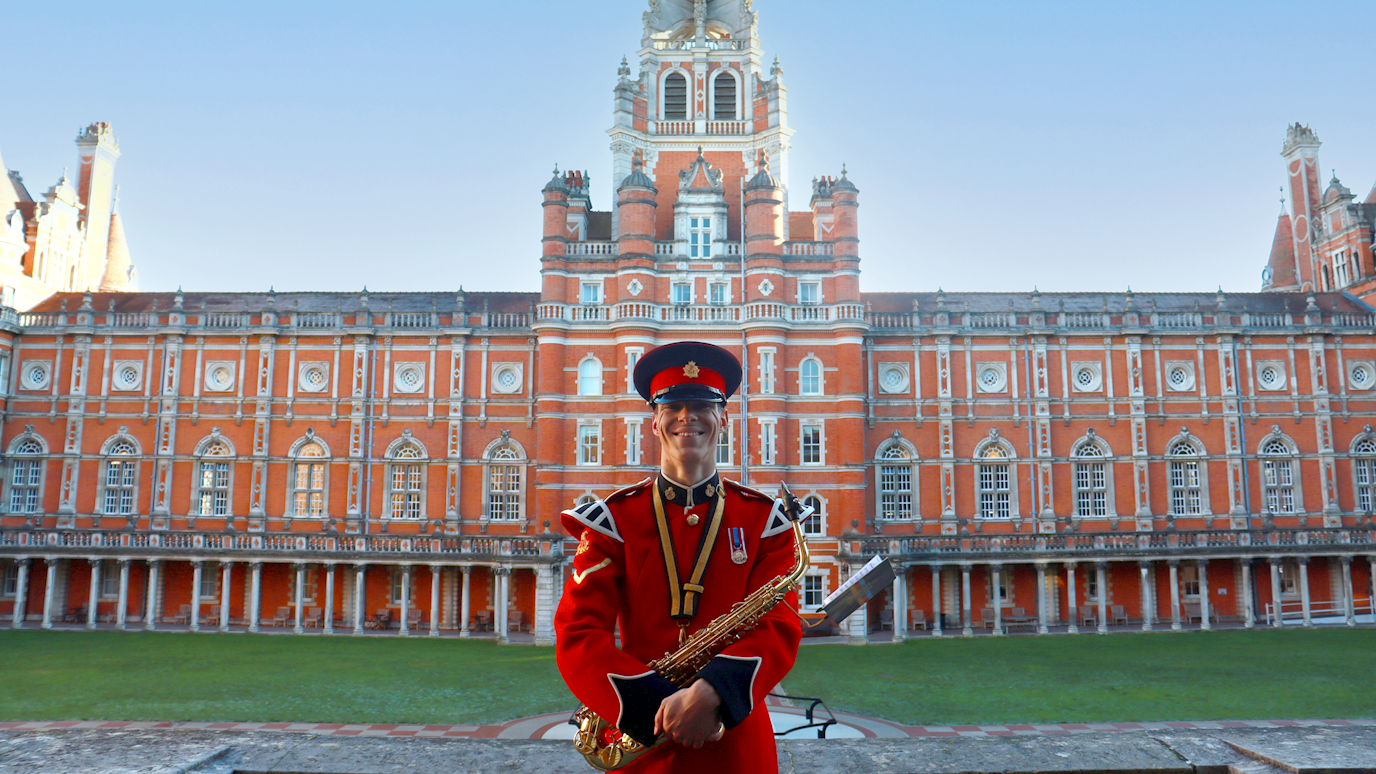Frances Dimond’s (English, History & Aesthetics, 1968) new book “Queen Alexandra: Loyalty and Love” is published on 28/02/22. We spoke to her to find out more about the book and her time at Bedford College.

Cover of “Queen Alexandra: Loyalty and Love”
Frances Dimond’s biography, Queen Alexandra: Loyalty and Love, is published on 28th February. One could say that the book has been the culmination of a lifetime’s research. Frances tells us her fascination with royal history started, “when I was about 6 years old and in due course Queen Alexandra became one of my favourites. Eventually, my work in the Royal Archives gave me the opportunity to read more about her and to study her letters, other documents, and photograph albums, and I became convinced that she was an interesting, lively and intelligent person whom some modern writers had undervalued and almost dismissed. Feeling strongly that someone should put a different, historically-supported view (and also wanting to see if I could write a serious full-length study of a national figure) I applied and was kindly given permission to do so.”
Frances pursued her interest in royal history professionally as soon as she graduated. Her friends encouraged her to contact the Royal Archives at Windsor Castle to enquire about posts. Although none was available, Frances tells us that she was invited to an interview and was hired for a temporary role sorting books in the Royal Library. A year later, she tells us, “a permanent vacancy occurred and I was lucky enough to be employed as Assistant Registrar in the Royal Archives, where I remained until 2005. The job expanded from working with documents and, occasionally, photographs, to my becoming officially the first Curator of the Royal Photograph Collection in 1977. This included dealing with researchers, correspondence, cataloguing, giving talks, writing articles and working on the occasional exhibition (such as Crown and Camera in 1987 and Presenting an Image in 1995) and their catalogues.”
During this time, Frances continued her research into Queen Alexandra, which resulted in the publication of her 2004 book Developing the Picture; Queen Alexandra and the Art of Photography. Frances says, “As a skilful photographer, with a lively style of annotating her albums, her character, so at odds with some published biographies, shone out. Alexandra herself always defended people she felt had been misjudged and I wanted to do the same for her - hence my current book”
We asked Frances why modern audiences would find Queen Alexandra of interest and she explained that she would probably be recognised in today’s “celebrity culture” due to her beauty, kindness and charm. She goes on to explain, that, “Alexandra however was no transient figure; she was grounded by Christian faith and a code of conduct based on devotion to close family and friends; her loyalty withstood troubles and difficulties, not least increasingly severe deafness. Her social conscience, support of charities, hospitals, and women's education are as relevant today as in the past. Her patronage of art, music and theatre supported works which interested and benefited the general public as such things still do today. Through involvement with the arts and crafts movement, she started the technical school at Sandringham, where local young people could learn skills which helped them find paid employment later. Her official and social duties still left time for her family, as devoted daughter, wife, mother, "big sister" and favourite aunt, with a sense of fun, who was always interested in what was going on.” Alexandra was a trailblazer for her era. She could be considered being an environmentalist before her time, setting up a wildflower garden at Sandringham. As Frances says, ‘In many ways she could serve as a role model for present times.’
Frances talks fondly of her time at Bedford College saying she ‘felt very much at home’, having visited Regent’s Park often whilst growing up. She studied BA English, History and Aesthetics, saying “the first two were familiar, while the third was entirely new (and even now I do not know how I managed to pass the exams), but the combination unexpectedly proved extremely useful in later life. Sometimes I would work on essays in the basement of the library in Herringham, on a level with the Park outside and on one occasion, sitting by a window, I heard the gardener talking away to a robin. The library was also enticing because it had a set of "The Strand Magazine", containing the original Sherlock Holmes stories, which (of course once the essays were finished) I would read avidly. Life at Bedford was very pleasant, without too much stress or anxiety. I did feel compelled to work (although, writing my current book, I realised that I had never worked so hard on anything in my whole life). But everything took off in my third year when I joined Bedford Light Opera Group (BLOG) which I loved. I am still in touch with friends made then and later in connection with it, and, although I have always enjoyed amateur drama, I am sure it was BLOG that encouraged me to join other groups later in life.”
Being part of the alumni community is something that is important to Frances. She says, “College life can ultimately be recalled affectionately, and being able to share memories with contemporaries can be comforting as well as fun. This is one of the good things about the alumni community, whether on a small scale (three friends meeting for lunch) or a larger one (talks, parties, gatherings or Zooms). These latter also give the chance to meet others who were students either earlier or later than oneself and to discover how similar or how different their experience was, and into what paths it led them in adult life. I think that basing a community on a shared experience can be very reassuring; it gives the feeling, somehow, that the academic world has not gone away and that we can still benefit from it, and help the young and upcoming students to do so too!”
Queen Alexandra: Loyalty and Love, publication date 28 February 2022
Available for pre-order from amazon.co.uk or bookdepository.com
























